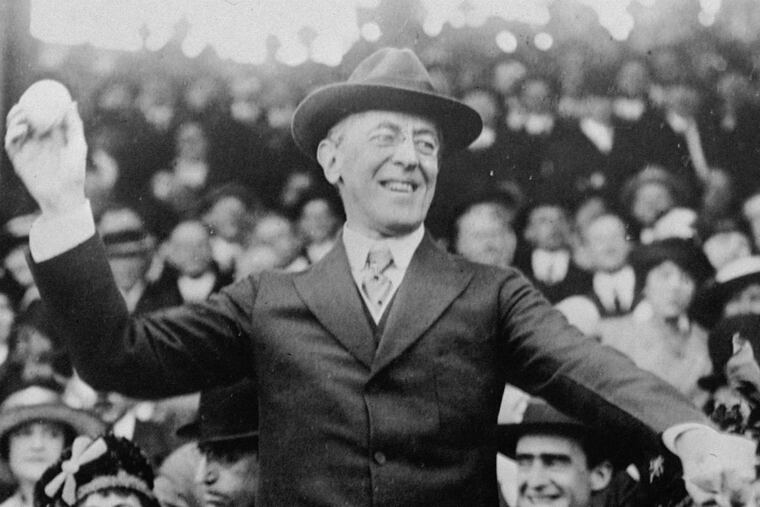Acknowledge our history, warts and all
By Nicolaus Mills If student protesters at Princeton have their way, the university will take steps to remove Woodrow Wilson's name from the Woodrow Wilson School of Public and International Affairs, as well as the residential complex that honors Wilson. The racism of Wilson, who was president of the university before he became president of the United States, makes him unworthy to have his name on these key buildings, the protesters argue.

By Nicolaus Mills
If student protesters at Princeton have their way, the university will take steps to remove Woodrow Wilson's name from the Woodrow Wilson School of Public and International Affairs, as well as the residential complex that honors Wilson. The racism of Wilson, who was president of the university before he became president of the United States, makes him unworthy to have his name on these key buildings, the protesters argue.
Wilson's racist views are undeniable. He praised the Ku Klux Klan, premiered The Birth of a Nation at the White House, and insisted that "segregation is not humiliating but a benefit."
Nobody would deny that Wilson's racial views are antithetical to those of a modern university. Despite leading America through World War I, winning the Nobel Peace Prize (1919), and providing the leadership that gave us the Federal Reserve System, Wilson remained an unreconstructed Southerner in too many ways.
But the protesters raise a question that goes beyond Wilson: What are we to do about all the figures from American history whose views on race would be anathema today?
Thomas Jefferson, who, like George Washington and Andrew Jackson, was a slaveholder, presents the most egregious case. In Philadelphia, Jefferson was the prime mover among the Founding Fathers in creating the Declaration of Independence, but in his letters and personal life, Jefferson's views on race are often worse than Wilson's.
"I advance it therefore as a suspicion only, that the blacks, whether originally a distinct race, or made distinct by time and circumstances, are inferior to the whites in endowments both of body and mind," Jefferson wrote in his book Notes on the State of Virginia.
"The unfortunate difference of color, and perhaps of faculty, is a powerful obstacle to the emancipation of these people," he added.
Princeton, anxious to avoid the kinds of racial protests that have roiled the campuses of the University of Missouri and Yale, is taking the demands of its students seriously. Princeton's president has agreed to begin discussions on the issue with the university's trustees.
But it would be a shame if the protesters got their way. America's history is a mixed one. We need to acknowledge the ways in which our past heroes come up short by modern standards. Erasing them from the buildings and memorials that honor them would be erasing our past.
Such a move would put us on a course of action in which every generation or two, we tear down a statue or monument to someone whose past does not meet our evolving standards.
The racist Thomas Jefferson was also the Thomas Jefferson who said of slavery, "The whole commerce between master and slave is a perpetual exercise of ... the most unremitting despotism on the one part and degrading submissions on the other."
Understanding both Jeffersons, like understanding Wilson in full, is one of the critical challenges we face these days. The price of such two-way thinking is that we end up honoring flawed men and women. But the alternative - pretending our heroes were saints - is worse.
Nicolaus Mills is the author of "Like a Holy Crusade: Mississippi, 1964 - The Turning of the Civil Rights Movement in America." nmills@sarahlawrence.edu